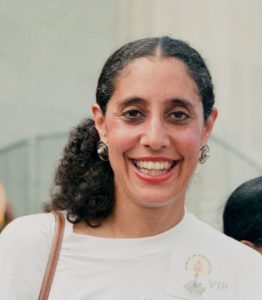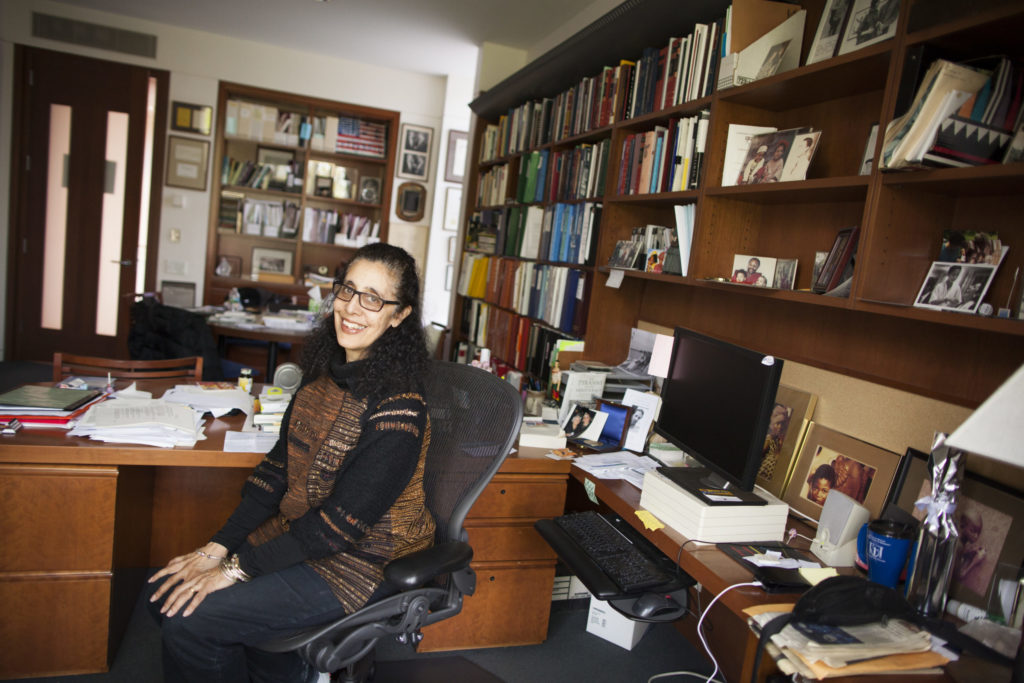
April 19, 1950 — January 7, 2022
During a celebratory event for Lani Guinier at Harvard Law School in February 2018, Columbia Law School Professor Susan Sturm invoked a phrase that was familiar to all of Guinier’s family, friends, students and colleagues in attendance. It was a line that Guinier often used when prodding her students into pushing harder and thinking deeper: “My problem is, if you stop there …”
Guinier’s work was underlined by that sort of determination, both nationally and at Harvard, and she was renowned for her scholarship, including “Lift Every Voice,” “Becoming Gentlemen,” “The Tyranny of the Meritocracy,” and “The Miner’s Canary: Enlisting Race, Resisting Power, Transforming Democracy” (co-authored with Gerald Torres). Guinier, who was the Bennett Boskey Professor of Law, joined the Harvard Law School faculty in 1998, becoming the first woman of color to be a tenured Harvard Law professor. Following a lengthy struggle with Alzheimer’s disease, she died on Jan. 7, at age 71.
“Lani Guinier was a giant — a historic figure in American law and in the life of our Law School. Her scholarship changed our understanding of democracy — of why and how the voices of the historically underrepresented must be heard and what it takes to have a meaningful right to vote,” said John F. Manning ’85, the Morgan and Helen Chu Dean and Professor of Law at Harvard Law School. “Lani devoted her life to justice, equality, empowerment, and democracy and made the world better as a result. Her voice, her wisdom, her integrity, her bravery, her caring for others, her imagination and rigorous thinking, and her unerring sense of justice will inspire those who knew her and those who come to know of her life and legacy in the years to come.”

“If I had to think of one idea I would associate with Lani, it is ‘meaningful participation,’” said Kenneth Mack ’91, the Lawrence D. Biele Professor of Law and affiliate professor of history, Harvard University. “Lani spent her career thinking about, and working for, the proposition that people, particularly those without power, should be able to participate meaningfully in the institutions that affected their lives. Her work on voting and democracy — the work that would bring so much controversy — was all about the fragility of democratic systems. African American communities and their continuing struggles to participate, were the ‘miner’s canary,’ to use a term she later coined with Gerald Torres — evidence of largely unseen problems with the ability of many groups to engage with the democratic process.” As a colleague and friend for two decades on the faculty together, Mack said Guinier modeled meaningful participation for others. “She’d ask questions of you that no one else would ask, and would always push you, sometimes in uncomfortable ways, to think more deeply about what you were doing and why you were doing it.”



